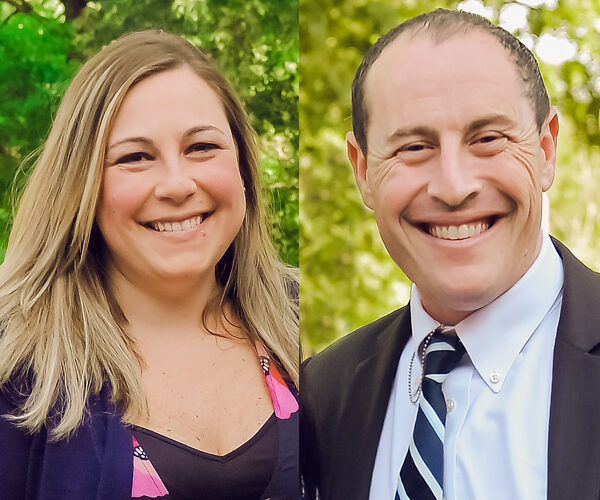By Michael I. Friedman, J.D., CAP, Senior Vice President, Philanthropic Planning and Services
What to Ask Your Advisor
this Tax Season – And, No, It’s Not
Just About Taxes

Discussions between advisors and clients about philanthropy are on the rise, finds the U.S. Trust Study of the Philanthropic Conversation, as clients report advisors to be a valuable source of information, second only to their spouse or partner. However, the study reveals several disconnects between advisors and their clients. For instance, many advisors underestimate their clients’ desire to discuss philanthropy early in their advisory relationship and overestimate the importance of tax benefits as a motivation for giving.
While some 68% of clients surveyed indicated that tax benefits are at least sometimes a motivation to give, 58% of clients in the study expressed a desire to have philanthropic conversations with their advisors early in their relationship. But most advisors wait to raise the subject of philanthropy until they have detailed knowledge about their client’s financial picture (87%) or personal life (85%).
How can you and your advisor get the most out of your relationship? Make your plans known at the first meeting and ask the right questions at the right time.
Here are 3 tax-related questions to ask your advisor this tax season:
1. Did my gifts to charity last year help reduce my taxable income?
The sweeping changes to the federal tax laws now mean that charitable donations are deductible only if you itemize, which is a less likely scenario for many taxpayers given the new, higher standard deduction ($12,400 for individuals in 2020 and $12,550 in 2021; and $24,800 for married couples in 2020 and $25,100 in 2021, slightly higher for those over 65). If you find yourself in a situation where your gifts last year did not exceed the standard deduction, do not worry, there are planning tools that you can employ this year and, in the years to come, that will help you continue to be tax-efficient.
2. Is there any type of giving that I should be doing to help my tax situation?
a. If your annual charitable giving does not put you over the standard deduction threshold, you may consider discussing the option of “bundling” your giving. The idea is that you take a few years’ worth of ALL of your charitable donations into a single year to help push you over the standard deduction threshold.
“Many advisors underestimate their clients’ desire to discuss philanthropy early in their advisory relationship and overestimate the importance of tax benefits as a motivation for giving.”
i. You can give specific charities those bundled amounts and let them know that it is your giving for a number of years.
ii. Another option is to put the bundled amount into a Donor Advised Fund at The Associated, which affords you a larger tax deduction in Year One and additional savings on your federal income taxes. Then, in the subsequent years, you have your Donor Advised Fund from which all your charitable contributions can be made to the charities that you love to support. And your initial contribution has the opportunity to grow tax free in the Donor Advised Fund, potentially giving you more charitable dollars with which to make an impact.
b. For anyone who is 72 or older, if you have an IRA, you must take a Required Minimum Distribution or RMD every year. When you withdraw your RMD, you are realizing additional income in that taxable year. One solution to avoid paying those additional taxes is to make your charitable gift directly from your IRA and make a Qualified Charitable Distribution (QCD) to charity (NOTE: persons may make QCD’s to charity as early as age 70-1/2). To do this, you simply contact your IRA plan administrator and instruct them to send all or a portion of your RMD (up to $100,000 per taxpayer per year) directly to the charity or charities that you support. By employing this tactic, you fulfill your obligation to take your RMD, avoid additional income, and continue to support the charities you care about most deeply. Moreover, if you are taking the standard deduction, giving to charity from your IRA will reduce your taxable income and save you more on taxes.
3. Which assets are the best to donate to charity?
Assets that have appreciated in value can be among the most tax-advantaged items to contribute to charity because you can potentially eliminate capital gains tax liability on their sale and enjoy a current year tax deduction, if you itemize. This allows you to pay lower taxes and also allows the charities you support to receive the most money possible. Some examples of highly appreciated assets include publicly traded securities, restricted stock, real estate, privately held stock (C-Corp and S-Corp), and limited partnerships or limited liability corporations. And a Donor Advised Fund is a great vehicle to put those assets into if you are giving to charities that are not as experienced at handling those complex assets. Here at The Associated, we can work with you and your advisor to sell your contributed appreciated asset and put the proceeds into a Donor Advised Fund, which will allow you to make charitable contributions on a timetable that suits you.
What other issues should you address with your advisors?
Be sure to ask about long-term strategies that fulfill your long-term financial goals for your family and for the causes that you support. Your advisor may not ask you early on in your relationship. Consider the legacy you want to leave behind, and how careful planning today can have long-term impacts that benefit our family, our friends, and our community.

Check with your tax advisor to find out if any of the above strategies would work for you. As always, The Associated’s Philanthropic Planning and Services professionals remain ready to work with you and your advisors on how to incorporate charitable planning into your estate plans and how to help maximize the financial and charitable benefits of any such planning strategies available to you. For more information, contact Michael Friedman at mfriedman@associated.org or 410-369-9233, or Jackie Yahr at jyahr@associated.org or 410-369-9248.
This article is for informational purposes only and should not be construed as legal, tax or financial advice. When considering gift planning strategies, you should always consult with your own legal and tax advisors.
Subscribe to our newsletter
The Associated is a home for everyone in the Baltimore Jewish community. We offer several email lists to help people find a community, engage with their peers and support Jewish journeys around the world.
Join Our Mailing ListAdd Impact to Your Inbox
Sign up for our newsletter
Subscribe to our newsletter
The Associated is a home for everyone in the Baltimore Jewish community. We offer several email lists to help people find a community, engage with their peers and support Jewish journeys around the world.
Join Our Mailing List









 Please Wait while we loading your video.
Please Wait while we loading your video.